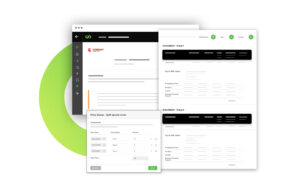Net Revenue Retention Is the Key to Sustainable SaaS Growth

Renewals keep revenue stable, but Net Revenue Retention (NRR) fuels real growth. By tracking expansion, contraction, and churn together, NRR reveals whether your customer base is growing in value or shrinking. This single metric helps SaaS companies drive upsells, reduce downgrades, and build predictable, scalable revenue.
Why Are Renewals No Longer Enough?
A 90% renewal rate looks strong on paper—but if existing accounts aren’t expanding, growth slows. That’s why top SaaS companies use NRR as their north star.
Unlike gross retention, NRR accounts for upgrades, downgrades and churn. Anything above 100% means your customer base is growing even without new acquisitions. Best-in-class SaaS companies often hit 120–140% NRR.
What Is Net Revenue Retention (NRR)?
NRR measures the recurring revenue retained from existing customers after factoring in expansions, contractions, and churn.
NRR Formula:
NRR = (Starting MRR + Expansion MRR – Contraction MRR – Churned MRR) ÷ Starting MRR
- Expansion MRR: Upsells, cross-sells, and add-ons
- Contraction MRR: Downgrades or usage reductions
- Churned MRR: Revenue lost from cancellations
NRR shows if your customer base is growing or shrinking—and how effectively you’re capturing expansion revenue.
Why Does Customer Success Own NRR?
NRR isn’t driven by new deals; it’s driven by the post-sale experience:
- Onboarding and activation
- Ongoing adoption and usage
- Renewals and expansions
Focusing only on renewals is a missed opportunity. Tracking NRR gives Customer Success (CS) teams a clear revenue mandate and makes them accountable for deepening customer value, not just preventing churn.
What Are the Drivers of NRR?
Expansion MRR: The Upsell Growth Engine
Expansion includes any revenue gained from existing customers:
- Adding users or seats
- Upgrading to higher tiers
- Purchasing add-on features
- Expanding into new business units
Upsell strategies for SaaS companies hinge on identifying accounts with increasing engagement and usage. Expansion is about earning the right to grow by proving value.
Contraction MRR: The Hidden Revenue Drain
Contraction can be subtle but harmful. It includes downgrades, reduced seat counts, and decreased usage.
By analyzing contraction trends, you uncover:
- Adoption gaps
- Product misalignment
- Pricing friction
Preventing contraction is as critical as driving expansion.
How Do Subscription Analytics Improve NRR?
Real-time subscription analytics make it easy to monitor expansion and contraction at both the macro and account levels.
1. Expansion vs. Contraction Dashboards
- Identify which accounts are growing vs. shrinking
- Prioritize accounts for upsells
- Spot early warning signs of reduced usage
2. Playbooks for High-Potential Accounts
- Layer product usage, NPS, and engagement signals
- Target upsells to accounts ready for expansion
- Scale tailored plays, not generic sales pushes
3. Impact Tracking
- Attribute expansion revenue to CSM actions
- Measure playbook performance by segment
- Justify CS budgets with proven revenue outcomes
Why Is NRR the Ultimate SaaS Growth Metric?
High NRR signals predictable, scalable growth:
- More revenue without more new logos
- Lower dependency on pipeline
- Higher valuation and investor confidence
- Clear product-market fit
A company with 120% NRR grows even if new customer acquisition stalls. That’s why NRR is the metric boards and investors watch closely.
5 Best Practices to Improve NRR Today
- Onboard for Long-Term Success – Shorten time-to-value and align expectations.
- Monitor Usage Continuously – Flag drop-offs early, not just at renewal.
- Tie Success to Business Outcomes – Help champions prove internal ROI.
- Celebrate and Incentivize Expansion – Build upsells into CS culture.
- Automate Low-Touch Plays – Use tech to cover long-tail accounts at scale.
Net Revenue Retention vs Gross Revenue Retention
| Metric | Gross Revenue Retention (GRR) | Net Revenue Retention (NRR) |
| Includes Expansion Revenue? | No | Yes |
| Accounts for Contraction? | No | Yes |
| Measures Growth from Existing Customers? | No | Yes |
| Benchmark for Healthy SaaS | ~90%+ | 120–140%+ |
| Signals Product-Market Fit? | Partial | Strong indicator |
Frequently Asked Questions (FAQs)
What is a good NRR benchmark for SaaS?
Best-in-class SaaS companies achieve 120–140%+ NRR. Anything under 100% signals contraction.
How does NRR differ from Gross Revenue Retention?
GRR doesn’t include expansion revenue, while NRR does—making it a more complete growth metric.
Can Customer Success teams directly influence NRR?
Yes. Through onboarding, adoption, renewals, and upsells, CS teams shape expansion and contraction outcomes.
What tools help track NRR?
Subscription analytics platforms, CRMs, and revenue dashboards with expansion vs. contraction visibility.
How can you improve NRR quickly?
Focus on at-risk accounts, strengthen onboarding, and identify upsell opportunities in accounts with strong product adoption.
Ready to fix leaks, speed up quoting, and unlock hidden revenue?
Use our RoI Calculator to see where your business can grow next.





